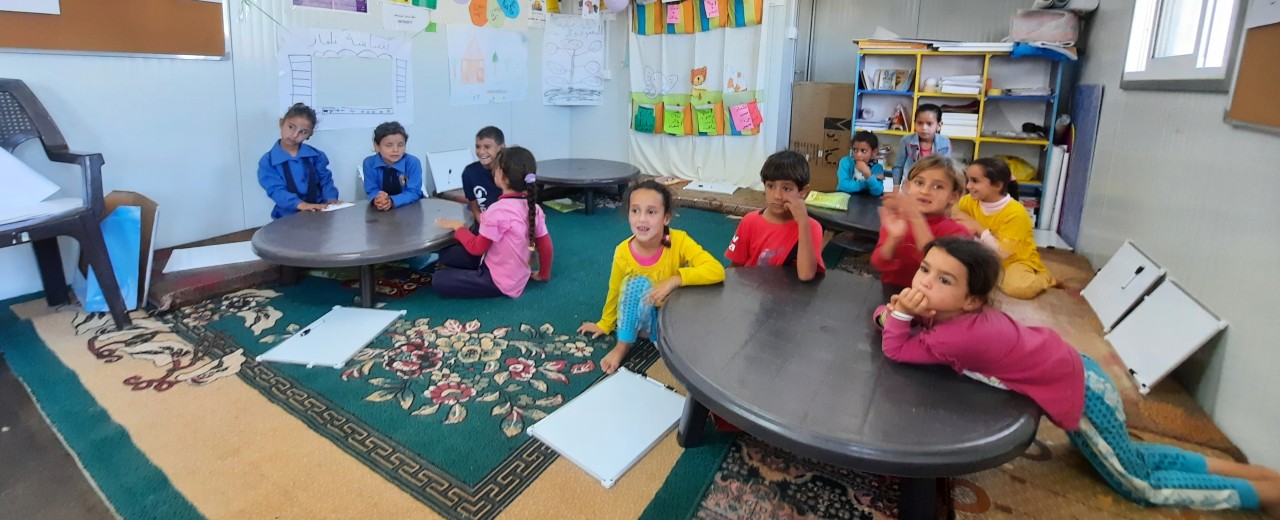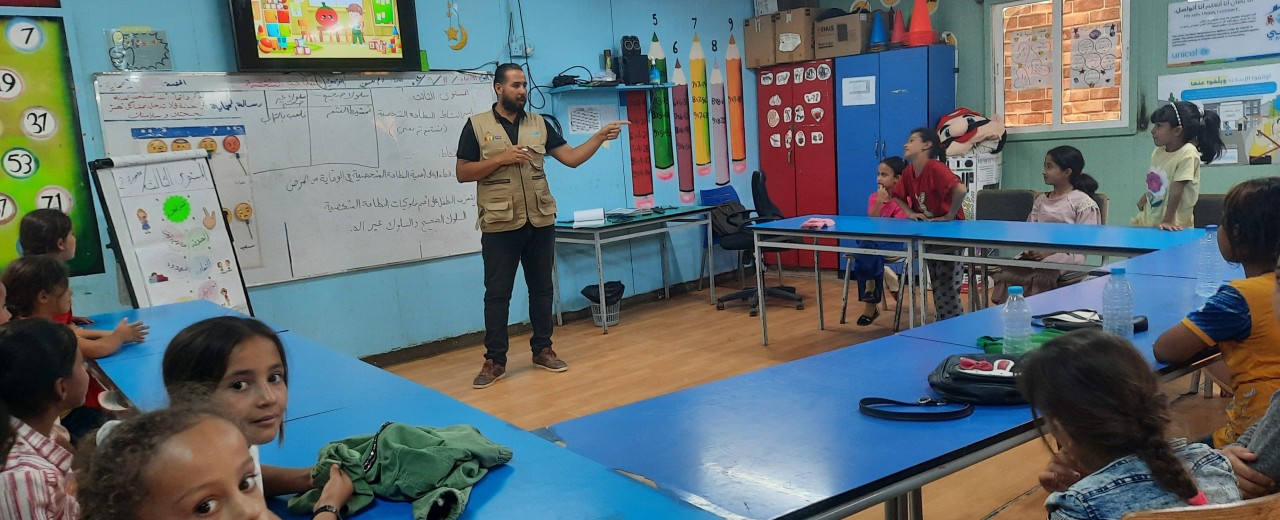News from 2025-06-18 / KfW Development Bank
World Refugee Day takes place every year on 20 June
KfW supports Syrian children and young people in Jordan

World Refugee Day on 20 June is a reminder that all people have the right to protection - wherever they come from, wherever they are and whenever they are forced to flee. According to the United Nations Refugee Agency's (UNHCR) World Refugee Report 2025, 122 million people worldwide are on the run.
At a time of drastic budget cuts by many donors, the UNHCR warns of the consequences: Millions of vulnerable people are losing vital support. Children are particularly affected - more than 17.4 million refugee children are at risk of experiencing violence, abuse, human trafficking or family separation. Children are also increasingly at risk of abuse, early marriage or recruitment by armed groups.
The situation in Jordan
The UNHCR has registered 600,809 refugees in Jordan (as of April 2025), 90 per cent of whom come from Syria, around half of whom are children. KfW Development Bank has been supporting UNICEF programmes on behalf of the German Federal Ministry for Economic Cooperation and Development (BMZ) since the start of the war in Syria in 2011: Children and young people can go to school and receive psychological care and individual support in a protected environment.
KfW Development Bank has been active in Jordan for 60 years, primarily in the water and energy sector, but also in the field of education, where it finances teachers' salaries and improves and builds school infrastructure, among other things. With the influx of refugees from Syria, the challenges in the sector have become even greater - the Ministry of Education and international partners such as the United Nations Children's Fund (UNICEF) and UNOPS are tackling them together, with support from KfW.
Syrian refugees support the education sector
As part of several phases of the ‘Syrian Refugee Support to the Education Sector’ programme, Syrian refugees were given access to education and improved social protection - and support and teaching in Jordanian schools and educational institutions in camps have been improved. This was one of the two objectives of the programme, the second: jobs and income for refugees. They - around 1,000 per school year - found temporary work in schools, kindergartens and youth centres both in camps and in host communities, as assistant teachers, playground supervisors and administrative staff.
In 2024, KfW's independent evaluation unit reviewed phase II of the programme and rated it as ‘successful’ - although only a limited sustainability claim was attested due to the virulent crisis situation and the limited capacities in the Ministry of Education and at national NGOs.

Makani Centre: place of refuge
Among other things, the refugees were employed in the Makani centres (Arabic: "my space") in the Za'atari refugee camp, in the Azraq refugee camp and in host communities throughout Jordan. In 2021, UNICEF operated 140 Makani centres in the country. The centres provide a safe space for Syrian and Jordanian children in need to learn, play, develop new skills and reach their full potential; parents are supported through early childhood development programmes. The children's language and reading skills have been significantly improved, violence in schools has decreased - and the joint teaching / supervision of Jordanian and Syrian pupils has promoted social integration. The number of children dropping out of school has also fallen.
The volunteers take part in training courses that are essential for the implementation of the Makani programme, but also help to develop their professional skills and future employability. Women have particularly benefited: in a context where the employment rate of female Syrian refugees was 7 per cent, the project was able to achieve a 60 per cent female participation rate. The work of the Syrian teachers had to be declared as ‘voluntary work’, as the Jordanian education sector is closed to foreign professionals. Instead of a salary, they only received an ‘incentive payment’. The employer was not UNICEF, but various NGOs or a personnel management company. Group interviews were conducted as part of the evaluation, which revealed positive effects in terms of social integration and the self-esteem of the auxiliary staff: they recognised the added value of their work for the pupils.
The project was part of an extensive FC portfolio in Jordan with numerous components for the care of refugees in the country: cash-for-work measures; maintenance and repair of schools used for the required multi-shift operation; financing of around 7,000 salaries for teachers and administrative staff or the water and energy supply, e.g. in the Za'atari and Azraq camps.

Share page
To share the content of this page with your network, click on one of the icons below.
Note on data protection: When you share content, your personal data is transferred to the selected network.
Data protection
Alternatively, you can also copy the short link: https://www.kfw-entwicklungsbank.de/s/enzBWrMC.DQfA
Copy link Link copied